all of the selves we Have ever been
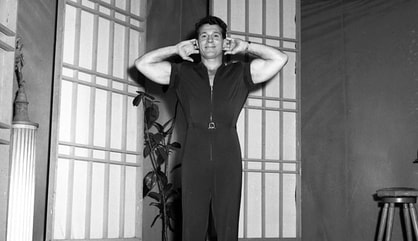 I continue my battle with inertia. Wintry weather and rich holiday food have not helped. It is a profound truth: a body at rest does remain at rest…I am searching for that outside force that will get me moving in the right direction. Stuffed with Thanksgiving Day dinner leftovers, mostly desserts, I rally the strength to lift a finger and find myself again climbing the tree of knowledge. Health experts and influencers abound on the internet. Surely, there is one who is right for me. I survey the literature. It turns out that a square meal is not a brownie and a well-rounded meal is not a pie. Who knew? I need a new program. Diet? Exercise? Both? I scroll down looking for a name I recognize, someone with history and credentials. I see something familiar: “Did you ever eat a pine tree?” No, Euell Gibbons, I did not--not even a pinecone. I did try Grape Nuts once. I’m pretty sure that was a close encounter. Upon further reading, I discover that dinosaurs considered pinecones a delicacy. I’m not sure that piece of news is a selling feature with dinosaurs being extinct and all. Folklore suggests that a woman should place a pinecone under her pillow if she wants to become pregnant. At my age, that’s one more reason to keep pinecones out of the house. Not the abs I’m looking for. Euell Gibbons was one of the first health food advocates I can recall from my youth. He was a well-known outdoorsman famous for eating pine trees, cat tails, and other bits of nature. I was pretty fascinated by the man when I was a grade schooler, but now I wonder: can the pinecone spokesman really be trusted? He died at the age of 64 with the cause of death in dispute. Some say he died from heart attack or ruptured aortic aneurysm. Others suspect he died from eating bad food. Bad genes were implicated as well. Maybe not the approach I am looking for… I move on to another health guru of my young adult years: Jim Fixx. He started a revolution in exercise, making running a very popular sport with the publication of The Complete Book of Running. Fixx turned to running as he attempted to turn his life around. I guess gravity and inertia had gotten to him as well. A history of smoking two packs of cigarettes a day probably hadn’t help. Again, genes were not in his favor. Jim’s father died at a young age from heart disease. Despite his dramatic turnaround, Jim Fixx died of a heart attack during a daily run. He was fifty-two years old. This is not looking good. I have already outlived the health legends of my youth. It was not through any conscious effort on my part; it was the luck of the draw. I had better genes. I narrow my search. I need a guru with good health advice and good genes. Enter Jack LaLanne, of course! He was a staple of daily television beginning in 1959, and he lived to the age of 96. Until his final brief bout of pneumonia which he refused to treat, LaLanne continued to work out each day and operate his fitness empire. As a kid, I admired LaLanne’s jumpsuit and ballet slippers. I thought he might be one of Santa’s more handsome elves. LaLanne started out with a fifteen minute morning program. Well, I’ve got fifteen minutes. Things are looking up! And Jack wasn’t so fancy. Low-tech all the way. My kind of guy. He used basic household items like a kitchen chair for his equipment. I’ve still got one of those, and there is not a week’s worth of clothes hanging off the handlebars. Jack was focused on serving stay-at-home moms of that era. What a perfect time for a comeback. Stay-at-home moms are back in business and looking for curriculum for those remote learning gym classes. Jack LaLanne referred to body parts as “porches.” The behind was the back porch, the abdomen the front porch…With all of this outdoor social distancing, it’s a perfect time to work on the porches. I go to YouTube and pull up a couple of his workouts. Not too bad. I dig for his diet tips. The tide turns. It’s a bummer. (Or should I say porcher?) In his real life, LaLanne worked out two hours every morning. After that workout, his breakfast consisted of hardboiled egg whites, a cup of broth, oatmeal with soy milk, and fruit. His only other meal was a dinner of raw veggies, egg whites, and fish. Sounds like prison food. And yet, prisoners are allowed to wear comfortable, loose clothing. They are not tortured by tight waistbands and spandex. An exchange of freedoms… Maybe I’ll stick with my program. Inert and alone on my big back porch seems like the patriotic thing to do in a pandemic.
0 Comments
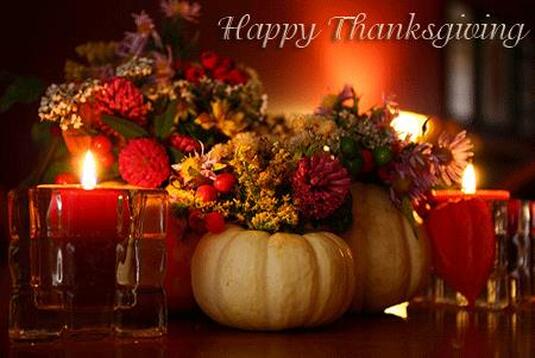 When my son was a preschooler and offended by someone’s remarks or behavior toward him he might say: “And I’m not thankful for you!” Ouch! We connect with those we appreciate. The unappreciated are discarded from our memory banks. Forgotten. We stop seeing them. And sometimes we forget to acknowledge those we do appreciate. We take them for granted, and they disappear from our lives. Hurt, they stop seeing us. The natural consequence of isolation and social distancing is to become self-focused. After all, we’re the only ones around. As a result, some of our fellow travelers have fallen below the radar, forgotten and unacknowledged. Many of them are carrying the weight of the pandemic load: nurses’ aides, truck drivers, funeral home attendants, janitors, grocery store stockers, and even old friends, co-workers, and neighbors. Everyone everywhere is doing more with less. Most are doing more alone. Last week during my daily walk, I stopped for a Fed Ex driver pulling his rig off of the adjacent four-lane highway. The trailer was as big as a building. The driver was trying to connect the rear end of the trailer with a tiny loading dock not much wider than the truck’s dashboard. Patiently and repeatedly, the driver moved the rig forward and backed it up. He seemed unperturbed by the traffic on the busy four-lane highway, the speeding cars, and the impatient pedestrians and bicyclists. The FedEx driver kept at it until it was delivery accomplished. As I waited for the path to clear, I thought that I would rather donate a kidney sans anesthesia than try to do what that driver had just done. Hey, truck driver! I am thankful for you. And so I began paying more attention and realized how much hard work is done each day that, in some way, serves me and the quality of my life. I realized how many tasks need completion that I have no talent, skill, education, or temperament to perform. And I am thankful for all of those individuals who do the things I cannot. Also, I have grown more attentive to the phone, the mail, the email, and the text messages. I am grateful for every routine contact that breaks the monotony of social isolation and forms a bridge in the social distance. In early February, as this pandemic was becoming a reality, I got on the web at alloftheselves.com and started this blog. It was much like my children’s art projects: a chance to try something new, to experiment with new materials, to create something. But it was also a chance to connect with others during what would become a very lengthy period of isolation. My keyboard became a kind of magic wand granting me admission to other times, other lives, and other worlds. People started reading and commenting and sharing. Each day, my mind danced in conversation with people I know and many I have never met and yet feel I know. Dear readers, this time with you has been the highlight of my pandemic experience. I see you. And I am thankful for you! Happy Thanksgiving!  This morning, I received an email from a furniture store. The subject line promised deals for a cozy Thanksgiving. A cozy Thanksgiving? Hasn’t that been outlawed? Cozy is not an option this year. Close, intimate, snug are not words in our vocabulary this holiday season. Any subversive who tries to get cozy now and for the foreseeable future runs the risk of being outcast, fined, or terribly ill. Thanksgiving 2020 is the year of the distant and remote holiday celebration. With social distancing of six feet in my small apartment, I can have two guests. Each gets a separate room and an open window. If someone doesn’t mind sitting in the bathroom, I can make that three, but they will have to keep the fan running and promise to step into the bathtub and pull the shower curtain if someone needs to wash her hands. But these are minor inconveniences compared to the Pilgrims. By the time they stepped off the Mayflower 400 years ago, they were sick of cozy. The Mayflower was no Royal Caribbean or Norwegian Cruise Lines. For three months, a crew of 30 along with 102 future colonists crammed themselves into the cargo hold of a wooden merchant sailing ship. The ship was overloaded and running two months behind schedule with 3,000 miles of the Atlantic to cross as winter storms approached. Conditions were damp, cramped, and unclean. Imagine what it was like when massive storms caused widespread seasickness in the middle of the Atlantic Ocean! They made it with only two deaths and one birth along the way. They arrived in the New World 200 miles off course and facing a harsh winter. They continued to live on the ship for another six months as parties surveyed the area for a place to settle. Two to three people died each day. Only half of the Mayflower’s passengers survived to celebrate that first Thanksgiving. In their desperate circumstances, the Pilgrims had to ward off a mutiny by the economic migrants on board and negotiate a treaty with the local Native Americans. Through cooperation and an exchange of skills, a small group of only fifty-two Pilgrims survived. Their descendants now number in the millions and include Humphrey Bogart and President Bush. According to the General Society of Mayflower Descendants, as many as 35 million people worldwide descended from those Pilgrims. As we celebrate this 400th anniversary of the first Thanksgiving, we may be feeling like those seasick, wave-tossed Pilgrims. We’re on our way to a new world. No one is sure of the way. The ship is damaged and rickety, the crew is weary. And it stinks! Sometimes the officers spend too much time below deck drinking the Kool-Aid. The passengers argue over the life-jackets: they are uncomfortable, a violation of personal freedom, and they make us look fat….We’re sick of this trip. But longing for what we had reminds us of how much we’ve had. And a flawless adventure is no adventure at all. I am cozying up to the idea of a new national holiday. When this journey is over and we have hit dry land, lets stand six feet together, side by side, celebrating the cooperation, exchange of skills, and hope that brought us to a new, post-pandemic world. While we will mourn the loss of many, our numbers diminished, let it be a time of rebirth. Whatever flaws we have had, may the future remember us for our determination, and our bravery. 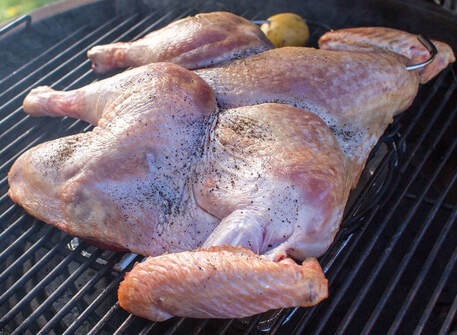 Somewhere in my cousin’s excited description of the Thanksgiving menu, I heard it: Spatchcocked. What?! I ducked for cover. My mind and body went on red alert the way it did when I was a kid and heard one of my parents curse. It brought back the trauma of the one and only time I heard my father say the F-word. Spatchcocked? Surely, that is a term that belongs on the list of bona fide dirty words. But I thought dirty words came in four-letter packages. This is a twelve-letter word. There must be a much longer list of dirty words than I ever imagined. I am naïve. I need to work on my vocabulary. Spatchcocked. Sounds like something nasty. I am certain my parents would have required me to say “butterflied” should I ever be permitted to speak of such a thing. To utter the word spatchcocked may have led to a mouthful of soap instead of cranberries. Apparently, spatchcock means to split open the turkey and lay it flat in the roasting pan. According to Martha Stewart, the bird cooks faster, remains moist on the inside while becoming brown and crisp on the outside. It is considered a “nontraditional” presentation. As far as I can see, the meat might cook faster, but the Thanksgiving centerpiece does not look so regal with its back broken and legs spread across the plate. Forget the memorable family photos of granddad carving up the traditional turkey. Martha Stewart reports that spatchcocking has revolutionized turkey preparation. With all of the recent talk of revolution, I didn’t think we were talking turkeys, at least not Thanksgiving turkeys. Martha writes, “Whatever you do, don’t let the term intimidate you.” Easy for Martha to say, but face it, that woman has been to prison. There is no way that word will not intimidate me. Her cavalier attitude makes me uneasy about every bite of my meal. Should I be on the look-out for a file in the pumpkin pie? Razor blades in the yeast rolls? Martha says it is easy to spatchcock a turkey. But again, this is a woman who taught the home arts in prison. “All you need is kitchen shears and elbow grease.” Seems to me I ended up with some pretty bad haircuts the few times I combined kitchen shears and elbow grease. If it took six months to pay off the emergency room bill and grow out my bangs, I am not likely to go after a slippery 20 pound bird even if it is dead and doesn’t care about how it looks. Upon further research, I discovered thousands of websites discussing spatchcocking. I am very late to the revolution. Despite my parents often saying, “Pardon my French” before uttering a dirty word, spatchcocking was neither a cause nor an outcome of the French revolution. The practice, or at least the word, may be of Irish origin, yet I’ve never heard anyone say, “Pardon my Irish.” But maybe we just like to put down the French out of jealousy over their delicious cuisine and fine couture. In my studies on the subject of spatchcocking, I did find one saving grace, a cause worth fighting for. The spatchcocked bird takes less room in the oven leaving more room for sides. I don’t know about you, but while the bird gets all of the attention, I’m all about the sides, and that’s the side I’m taking in this revolution.  And they call it puppy love. Not because we’re in our teens. Far from it. But because we are in love with actual puppies. Several of my friends have taken the leap and fetched themselves new puppies during this pandemic. For adults trying to behave, the boredom, social isolation, and absence of children and grandchildren have been overwhelming. (Sit, Lilli! Sit! Stay!) An apartment dweller, I enjoy these new relationships vicariously. I am as eager for the weekly pup reports as a girl on a pink princess phone engaging in romantic gossip with her classmates. I drink up the giddy happiness of my friends who sound like teenagers in love. In my career as a social worker and therapist, I have read the literature and seen with my own eyes the improvement a pet can make in the lives of patients suffering from heart disease or painful grief. Science has shown that the bedside presence of a loved one is an analgesic. Any pet lover will tell you that pain relief can come as effectively on four legs as it does on two. About the time I started receiving updates on the new canine love interests of my friends, I came across a pertinent passage in the novel News of the World by Paulette Jiles. Though set in an earlier period of American history, so much resembles the times in which we now live. The main character, Captain Kidd, travels the rugged southwest in the years following the Civil War. A former soldier and printer by trade, Captain Kidd goes from town to town in Northern Texas reading newspapers to paying audiences hungry for news of the world. He is alone, a 71 year old widower. His adult children and grandchildren are back in Georgia. The landscape he travels is rugged and dangerous. He is at risk of losing the family home. His money is gone, and he sold his printing equipment to pay debts. The government of the Reconstruction is corrupt. There is anarchy and lawlessness throughout the state. “Men have lost the ability to discuss any political event in Texas in a reasonable manner. There is no debate, only force.” Captain Kidd is asked to escort Johanna, a ten year old orphan, on a rugged 400 mile journey to her relatives in San Antonio. For four years, Johanna was raised by the Kiowa people after they killed Johanna’s family. Johanna was recovered by the U.S. Army, but she has forgotten much of her past, social customs, and the English language. As Captain Kidd faces the inconvenience of traveling with a terrified, minimally communicative little girl, he is also being stalked by a child sex trafficker who wants Johanna because “the blond ones” bring good money; they are a “premium.” Captain Kidd experiences fear and frustration. He talks to himself: he is old; he has raised his children. Why is he doing this? But even as he questions himself and curses his circumstances, something inside him shifts and his heart opens: “…he was drawn back into the stream of being because there was once again a life in his hands. Things mattered. The strange depression and spiritual chill he had felt…was gone.” Some needs are universal and timeless. We take their fulfillment for granted until loss or difficult circumstances remind us that we have those needs. We choose love and purpose where we can find them: on two legs or on four, in sickness and in health, in good times and in bad… So, rollover pandemic… Come, Molly! Come Festus! Come Alexis! Speak! 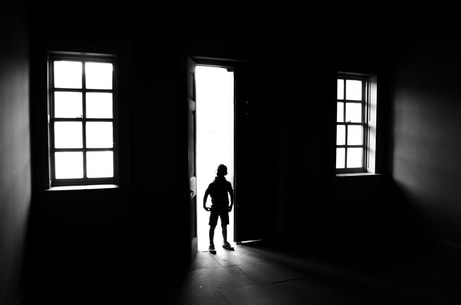 I knew them both. A few short miles separated their houses. A greater distance separated their lives. He had everything, it seemed. She had nothing. Their ages differed by more than fifty years. He had passed the age of ninety. She was barely thirty-five. A wide gulf separated their achievements. He was a decorated soldier, a retired corporate executive, and a practicing lay minister. She worked in a hotel, making beds and scrubbing toilets. He created a family that spanned many generations, and he had lived to see the children of his great-grandchildren. She would not live to see her only child go off to kindergarten. His stately home was built of brick and sat beaming on a cul-de-sac in an old, established neighborhood. A yard sign advertised his house on the Holiday Tour of Homes. In the garage, a boat kept company with a luxury automobile. His home was paid for. He had money in the bank and two hefty pensions. He lived each day surrounded by tasteful furnishings and expensive collectibles. She lived in a modest tract home in a low-rent neighborhood where broken-down vehicles lined the streets. A security camera on the house next door blinked the steady reminder of a break-in. Her small Ford was parked in the driveway, but it really belonged to the bank, not to her. She had no savings. Bill collectors called. She hoped to receive a disability check. Holes from a man’s fist, holes from her head accented the walls. He had the pleasure of a marriage that lasted more than fifty years. He said his wife was his closest friend. She awaited the arrival of a divorce decree. She said she still loved the man who put the holes in the walls. Despite his training and ministry to others, he believed that God was a son-of-a-bitch with a bad sense of humor. She had no religious instruction but hoped that God was kind and watching over her. He had many well-educated and capable adult children who tried to care for him, but he chased them away with his irascible disposition. With grace and patience, she allowed a mentally ill mother and a drug-addicted sister to care for her, to rise above their means and their own problems, to be better and braver than they might otherwise be. He greeted every day with contempt and hostility. He behaved so badly that a sigh of relief was offered to heaven when he passed suddenly and alone. She was surprised and grateful to open her eyes each day. She was showered with attention, tender care, and kisses. Heaven’s gate opened wide to a woman loved. Appearances can be deceiving. He that dies with the most toys is not always the winner. In the end, when both had died just days apart, she was the one who had everything. 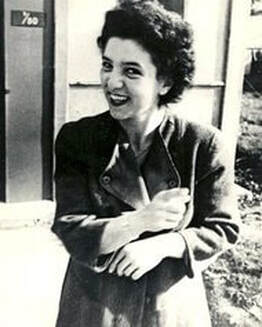 I wonder what my Aunt Lillie would think of the COVID-19 pandemic. My aunt served as an Army nurse during World War Two. She served in Great Britain during the worst of it and returned from war with Hodgkin’s Disease, a cancer of the lymphatic system. Her illness gave her the opportunity to witness health care from both sides of the sheets. Health care was crude back then. Compared to today’s standards, a post-war hospital was more like a prison than a health spa. Things might have been clean, but they were gloomy. The accommodations were imposing and institutional. Step inside a hospital and the world turned black and white. There were no soothing colors on the walls, no artwork, no coordinating draperies. Telephones and televisions were too new to be standard amenities. Going to the hospital was like doing time for the crime of getting pregnant, sick, or injured. The hospital was the place of last resort, not a first measure. If a person had surgery, she could expect to be down for weeks, maybe months. Cancer was a death sentence. Inside a hospital, the nurses did it all. In addition to starting IVs and other medical procedures, the nurses bathed the patients, mixed and delivered the medicines, served up the food, and changed the beds. They did it in uniform: a stiff white cap upon their heads, starched white dresses, opaque white hosiery, and thick-soled, laced-up, white oxford shoes. Into such a hospital went my Aunt Lillie, former Army Nurse. She may have been an auntie, but she was not a sissy. And Aunt Lillie knew clean. She also knew precision. Wow, could she make a bed! Her hospital corners were as tight as my Sunday shoes, and forget about that bouncing-coin trick, my Aunt Lillie could launch a moon rocket from a mattress. While it was never a good idea to bring valuables to the hospital, Aunt Lillie always came with a $50.00 bill which she placed under the bed. It became a test of how well the room was cleaned. She figured either someone would find the bill and return it, or find the bill and keep it. Either way, what Lillie cared about was that the every square inch of the room was clean. Health insurance was in its infancy. While the price tag for a hospital stay was small in light of today’s costs, much of the bill was an out-of-pocket expense, so any amount, when you are sick and bedridden, is too much. Aunt Lillie opened negotiations with, “Do you know what kind of room I could get at Caesar’s Palace for these prices?” Her odds of coming out ahead were probably greater in a Las Vegas casino. And so I now think of my feisty Aunt Lillie, Army nurse. I know that if she were here and well, she would be in a hospital, once again, doing her part for our country. Last night on the evening news I saw my Aunt Lillie in the images of the young nurses being interviewed. They were standing in the hospital war zones--crowded intensive care units. Other nurses were stretched out on sidewalks and bent over on park benches. Exhausted. Crying. Broken. I know nurses to be like my Aunt Lillie: stress hardy, confident, and people of action. They get stuff done and make things happen. They are not sissies or cry-babies. They are the backbone of our healthcare system. And that back is breaking. Maybe you don’t know anyone who has had COVID. But we all know a nurse. If you can’t do it… If you can’t take precautions, wear a mask, wash your hands, social distance, and stay home for the general good of the country… If you can’t heed the word of leaders who are begging for your cooperation… If you can’t hear the words of millions of grieving survivors… If you can’t act on the recommended safety protocols because you believe the pandemic is a fantasy or that it is behind us… Then take action and do it for our nurses. The ones you do know. The ones that were there with your mom when you came into the world… The ones who vaccinated you and brought you popsicles when you had your tonsils removed... The ones that took your temperature at school and bandaged your scraped knees… The ones that comforted you before and after surgery and gave you some dignity by helping you to the bathroom and by combing your hair… The ones who care for your aging loved ones in nursing homes… And the ones who put our soldiers back together… An exhausted, crying, heartbroken nurse is a sign of system failure. You might get a better room for the price in Las Vegas, but please don’t bet against our nurses. |
AuthorLilli-ann Buffin Archives
April 2024
Categories
All
|

 RSS Feed
RSS Feed